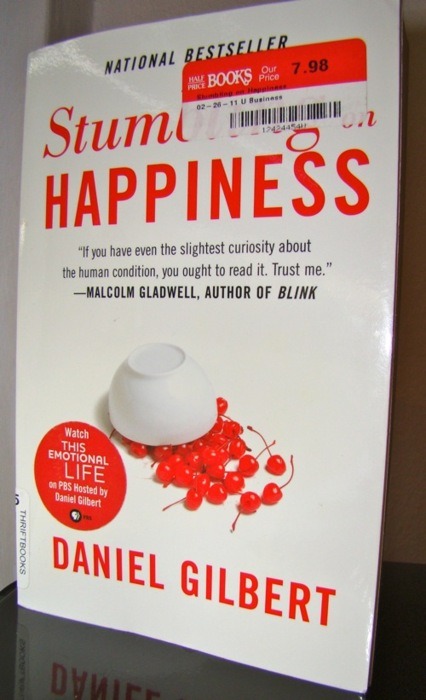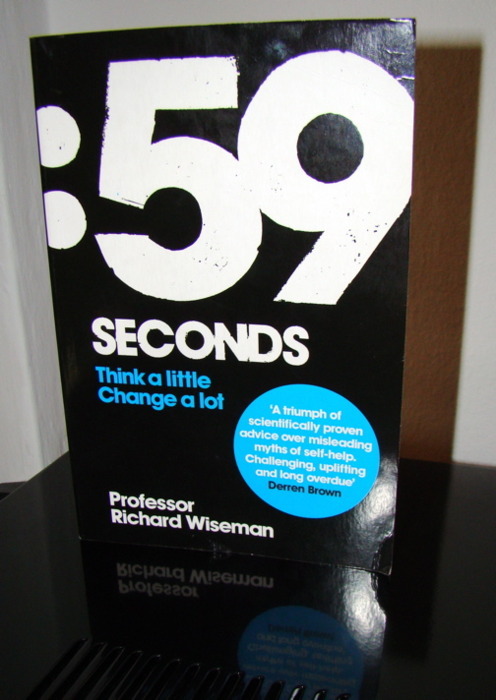
What is it about?
If you want to know how we think, feel and experience happiness, Daniel Gilbert is your person. He explores how happiness is influenced and how we make decisions.
What can I learn?
Uncertainty makes you happy: You probably wouldn’t think so. I’m happier if I know that I will have my job tomorrow than being uncertain about. Actually, no. People are happier if they don’t know what will happen. If something haven’t happened yet, we often overestimate it. Therefore we feel more happy because of the opportunities that can be. You could say that we are natural optimists.
Falsification and Approval: That’s an interesting observation which you can observe in nearly every discussion. If you want a theory approved, most time a single piece of evidence is sufficient. However, if something tries to falsify your theory, you will probably demand many pieces of evidence. This is a natural behavior which is quite rational. If you would check every assumption everyday you wouldn’t doing much more.
We are very similar: About 8 of 10 people with lung cancer will die within the next five years. If you have lung cancer, you probably hope that you are in the 20% that won’t die. There are other studies, e.g. one where university professors should rate their teaching skill. About 96% rated it as above average. The worst thing is, we are actually pretty similar. Not everybody is above average. Not everybody belongs to the 20% which won’t die from lung cancer. Not everybody is a great lover and an exceptional businessman.
Conclusion
Stumbling on Happiness is pretty okay. One criticizing point is that Daniel Gilbert tries to cover too much. If you want to read more about happiness I would recommend :59 seconds. If you want to read more about decision making I would recommend reading Predictionably Irrational by Dan Ariely.

